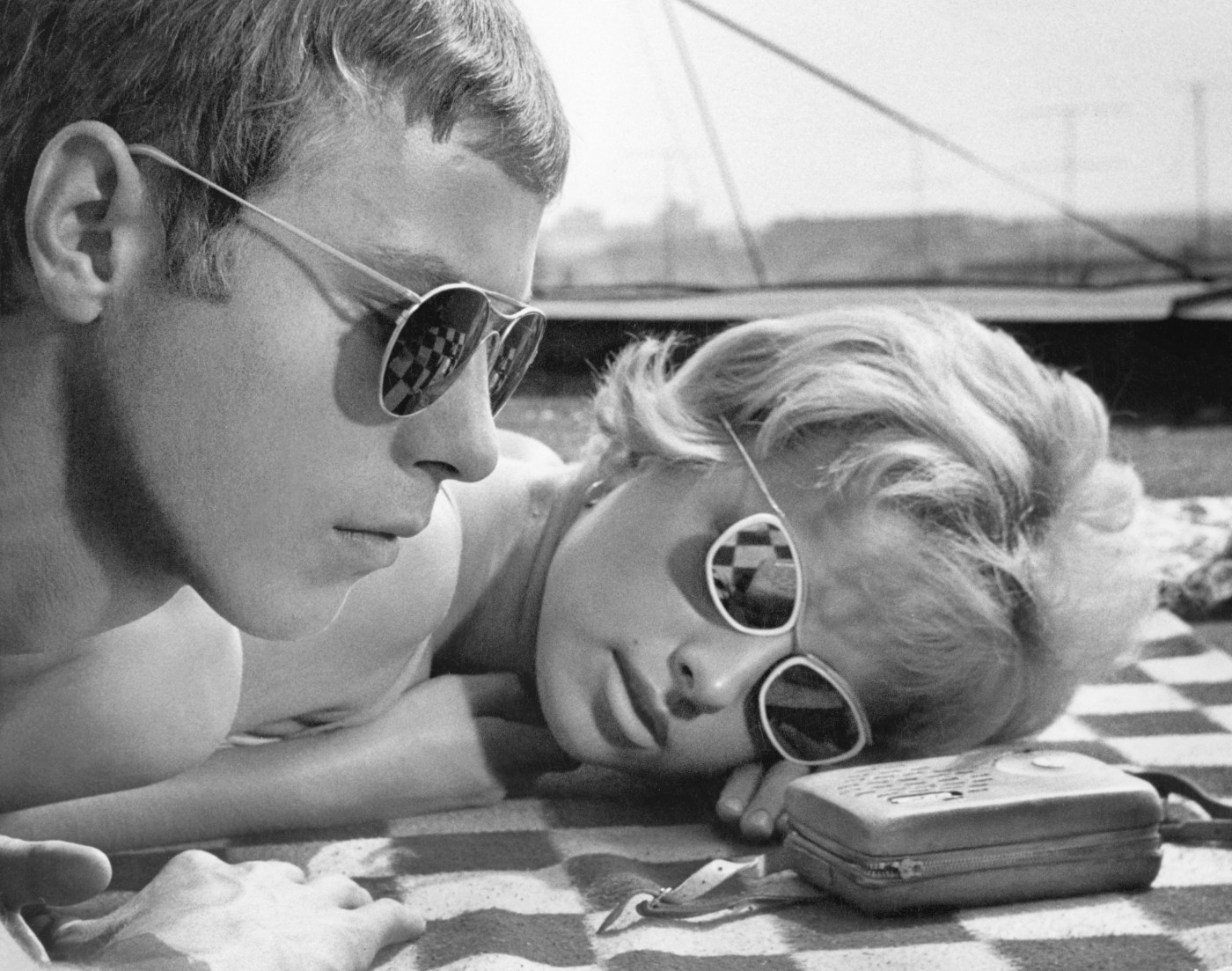
Seven Close Encounters 2016 / Slnko v sieti / Czechoslovakia 1962
Miroslav Janek presents
First love isn’t always about romance: Two young people in the middle of a big city endeavour to find their place in the world and discover who they really are, while experiencing a measure of anguish along the way. Uher’s film ushered in the Czechoslovak New Wave, a movement that focused on authentic heroes and their singular experience of reality.


“I was twelve or thirteen when I saw this film on our little black-and-white TV set. With the exception of one shot, I don’t remember a thing about it. I only know that I couldn’t get it out of my head for a very long time. There must have been something about it that was completely unexpected and new to me. I’m looking forward to the screening.” – Miroslav Janek. This comes as no surprise, since the adolescent and poignantly vulnerable Bela, like unruly youth Fajolo, captured the imagination of every viewer in the early 1960s. This was the first time the audience heard colloquial language blended with the specific idiom of the young generation; the lead actors weren’t ten or more years older than the characters they were playing, as was previously the custom, and they had fresh faces. All this reinforced the viewers’ sense that they could finally identify with the characters, which they had been vainly trying to do in the past. Several pictures emerged at Barrandov in roughly the same period that were similarly innovative, but Slovak Štefan Uher was the only one who truly conveyed the sensitivity of the young generation.
Zdena Škapová
90 min / Black & white, DCP
Director Štefan Uher
/ Screenplay Alfonz Bednár
/ Dir. of Photography Stanislav Szomolányi
/ Music Ilja Zeljenka
/ Editor Bedřich Voděrka
/ Art Director Juraj Červík
/ Producer Ján Svikruha
/ Production Štúdio hraných filmov Bratislava - Koliba
/ Cast Marián Bielik, Jana Beláková, Oľga Šalagová, Eliška Nosáľová, Pavol Chrobák
/ Sales Slovenský filmový ústav / Slovak Film Institute

Štefan Uher (1930, Prievidza – 1993, Bratislava) was a member of the first FAMU generation, graduating in 1955. He then began a career in documentary filmmaking, the influence of which is evident in his feature films. His other creative strands – a striking, poetic take on reality and an interest in lyrical motifs – prevailed in several films (Miraculous Virgin, 1966, Maple and Juliana, 1972), nevertheless, he generally struck a healthy balance between the two. This applies to his second feature The Sun in a Net (1962), considered the forerunner of the Czechoslovak New Wave movement. After the sombre drama Three Daughters (1967), reflecting 1950s oppression, he was forced to compromise during the Normalisation period. Before his death, however, he demonstrated that he was a highly astute observer of intricate human lives, as seen in Concrete Pastures (1982) and Curator of the Outdoor Museum (1988).
Slovenský filmový ústav / Slovak Film Institute
Grösslingová 32, 811 09, Bratislava
Slovakia
Phone: +421 257 101 503
Fax: +421 252 963 461
E-mail: [email protected]

Alexandra Strelková
Cinema Representative, Film Institution Rep., PR & Marketing
First-hand brews throughout the year.
Be among the first to learn about upcoming events and other news. We only send the newsletter when we have something to say.